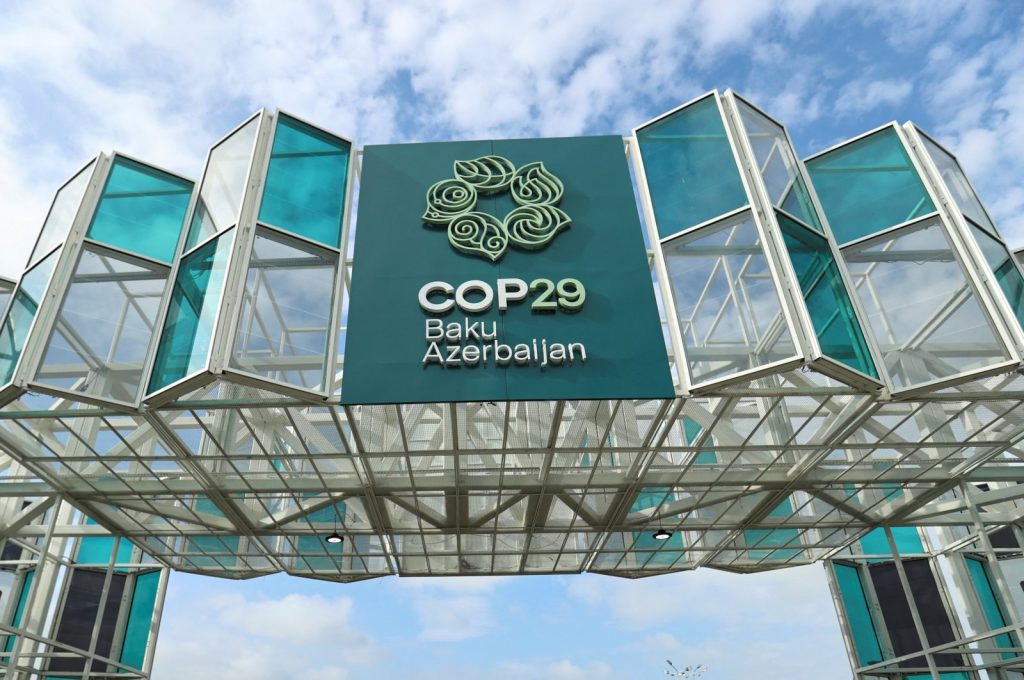The 29th United Nations Climate Change Conference (COP29) in Baku, Azerbaijan was another key step in the global fight against climate change. Though the summit represented incremental achievements in climate finance, carbon markets and industrial decarbonization policies like the EU’s Carbon Border Adjustment Mechanism (CBAM), it did not succeed in transforming renewable energy and solving the centuries-old problem of loss and damage.
One of the most striking aspects of COP29 was the commitment to allocate $300 billion per year by 2035 to help developing countries fight climate change. It’s a substantial jump from the previous $100 billion commitment and signals increasing recognition of the financial burdens of climate resilience. But even that pledge amount falls short of the estimated $1.3 trillion needed each year to reach the Paris Agreement targets. At COP29, the fight over climate finance signalled a chasm between the rich and the poor. While rich nations pledged to ramp up spending, most developing countries, already plagued by climate-driven catastrophes, vowed that the funding is insufficient and precarious. This forward march is symbolic rather than revolutionary unless we can set up more precise timelines and mechanisms.
Carbon credit mechanisms
COP29 saw the finalization of international carbon credit trading rules in Article 6.4 of the Paris Agreement. This desperately needed framework would standardize carbon markets and eliminate greenwashing, and provide a legally controlled method for states and companies to offset their emissions. Through a U.N.-backed world market, the treaty will bring much-needed financing to renewable energy projects in the Global South.
Nevertheless, questions linger over the use of carbon credits. Overuse of carbon offsets, critics say, risks delaying true decarbonization – especially in the high-emission industries. Nor are the poor afraid that strict rules could reduce their capacity to produce and sell credits and keep them at a disadvantage on international carbon markets.
Renewable energy transition
Despite the pressing need to decarbonize the world’s energy infrastructure, COP29 accomplished little in advocating for a faster transition to renewables. Opposition from oil-rich countries made it impossible to agree on meaningful steps to reduce the use of fossil fuels, illustrating the geopolitical nature of the energy transition. This neglect is especially alarming as renewable energy is one of the cheapest and most flexible ways to reduce global warming. Without stronger global commitments, nations may fail to achieve net-zero standards and fall further behind in the global war against global warming.
Loss and damage
Loss and damage, which includes funding to already climate-affected countries, remains a contentious subject. Although COP28 in Dubai set up a Loss and Damage Fund, COP29 could not follow through. There was no clarity about the fund’s purpose and funding streams, with at-risk countries bemoaning the lack of real progress. For nations whose coastlines are plagued by devastating and frequent climate-related floods, hurricanes and droughts, this inaction is catastrophic. Unless it provides direct operational mechanisms, the Loss and Damage Fund could easily turn into yet another bureaucratic guarantee delivered on the ground.
A double-edged sword
The EU’s CBAM, which places tariffs on carbon-intensive imports, was one of the main debates at COP29. Though CBAM seeks to stimulate global decarbonization, it presents obstacles for low- and middle-income countries. Countries such as Türkiye, which trade carbon-based materials like steel and cement with the EU, are in grave economic jeopardy if they do not comply with the CBAM. Türkiye, among others, demanded flexibility in the CBAM’s model to accommodate the decarbonization process that was already in progress. Also, the discussions at COP29 focused on capacity-building efforts that enable industries in emerging economies to adapt without disrupting the economy to the demands of the CBAM. Although the CBAM may create the potential to clean industrial processes faster, it must be equitably applied so that it does not harm low-growth economies.
Türkiye’s role
Türkiye was a strong participant at COP29 because of its geopolitical positioning as a medium between the advanced and the developing world. The nation showcased its net zero by 2053 plan and emphasized increasing investments in renewable energy, including solar, wind and geothermal installations. Türkiye’s attempt to integrate local collaboration with Azerbaijan and its neighbors into its renewable energy agenda was well-regarded as an example of cross-border cooperation. But Türkiye’s continuing domestic dependence on coal and natural gas was criticized. The state is simultaneously in the midst of ensuring energy security and moving toward global decarbonization targets. The CBAM in particular has presented Türkiye with both a problem and an opportunity. By incorporating renewable energy into its manufacturing processes and by coordinating its policies with EU requirements, Türkiye would be able to reduce CBAM emissions and become Europe’s and the Middle East’s clean energy powerhouse. Türkiye also called for equal climate finance, as well as the Loss and Damage Fund to help middle-income nations in the aftermath of climate-related disasters. In addition to its own vulnerabilities and economic goals, Türkiye’s presentation at COP29 points to the need for subtle, inclusive global climate action.
Strong and fair reform
COP29 in Baku emphasized the difficulties of multilateral climate negotiations. The summit had limited success on the fronts of carbon markets and climate finance but did little to address the nexus of renewable energy transitions and real-world loss and damage mitigation. The Türkiye’s frantic attendance at COP29 exemplified the nation’s emerging global climate diplomacy. As the world looks to COP30 in Brazil, nations such as Türkiye need to insist on sensible, proportionate solutions that cut across the gap between developed and developing countries. It is only by working together and setting ambitious goals that the world can ever ensure a sustainable and resilient future for everyone.


